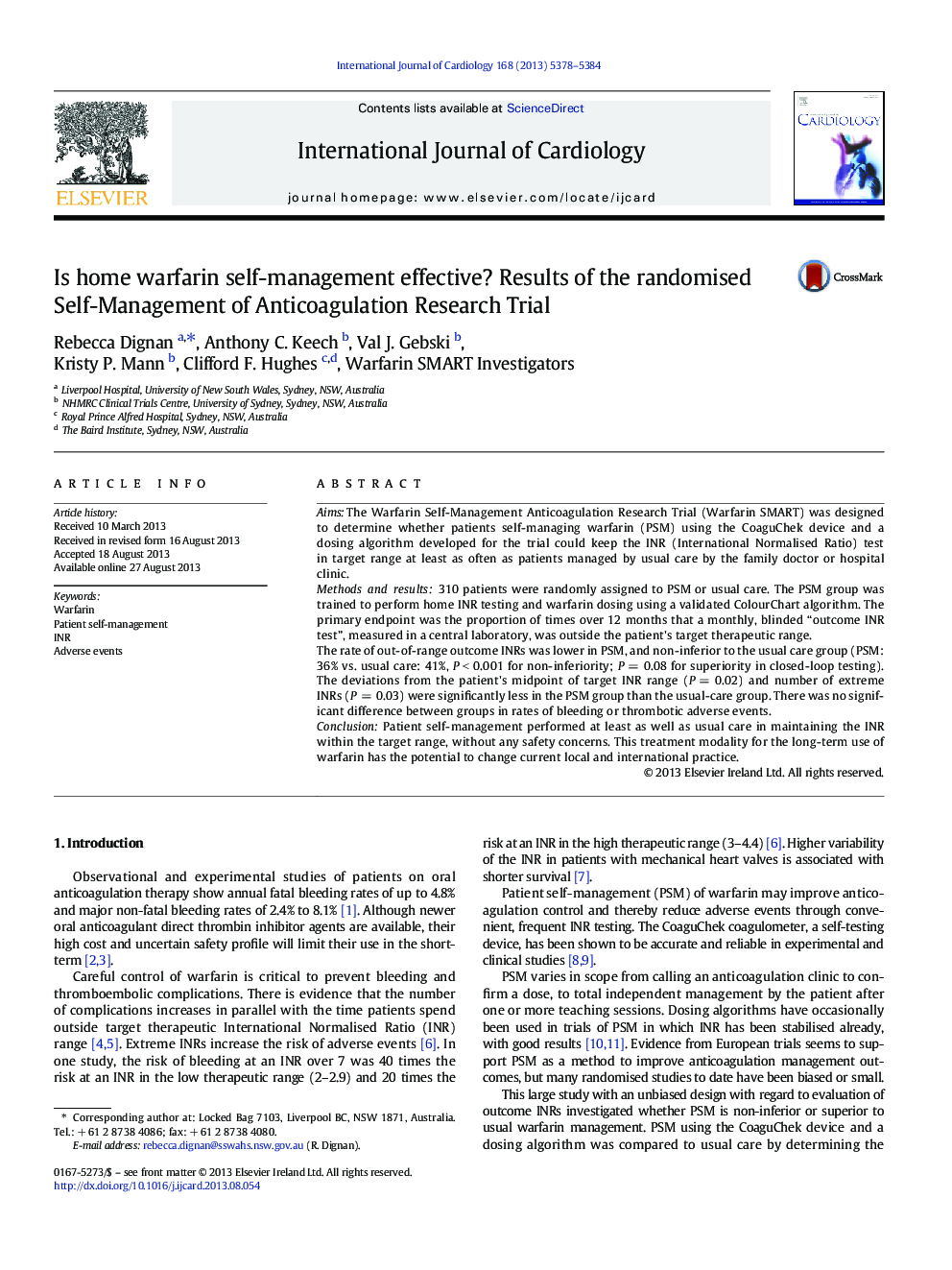| Article ID | Journal | Published Year | Pages | File Type |
|---|---|---|---|---|
| 5975130 | International Journal of Cardiology | 2013 | 7 Pages |
AimsThe Warfarin Self-Management Anticoagulation Research Trial (Warfarin SMART) was designed to determine whether patients self-managing warfarin (PSM) using the CoaguChek device and a dosing algorithm developed for the trial could keep the INR (International Normalised Ratio) test in target range at least as often as patients managed by usual care by the family doctor or hospital clinic.Methods and results310 patients were randomly assigned to PSM or usual care. The PSM group was trained to perform home INR testing and warfarin dosing using a validated ColourChart algorithm. The primary endpoint was the proportion of times over 12Â months that a monthly, blinded “outcome INR test”, measured in a central laboratory, was outside the patient's target therapeutic range.The rate of out-of-range outcome INRs was lower in PSM, and non-inferior to the usual care group (PSM: 36% vs. usual care: 41%, PÂ <Â 0.001 for non-inferiority; PÂ =Â 0.08 for superiority in closed-loop testing). The deviations from the patient's midpoint of target INR range (PÂ =Â 0.02) and number of extreme INRs (PÂ =Â 0.03) were significantly less in the PSM group than the usual-care group. There was no significant difference between groups in rates of bleeding or thrombotic adverse events.ConclusionPatient self-management performed at least as well as usual care in maintaining the INR within the target range, without any safety concerns. This treatment modality for the long-term use of warfarin has the potential to change current local and international practice.
